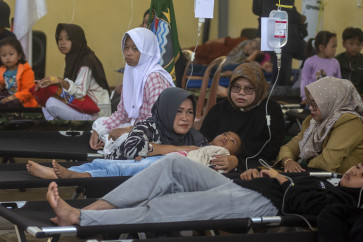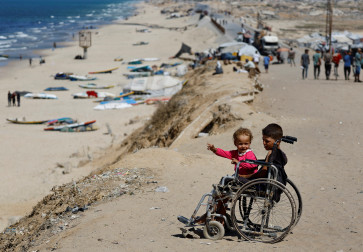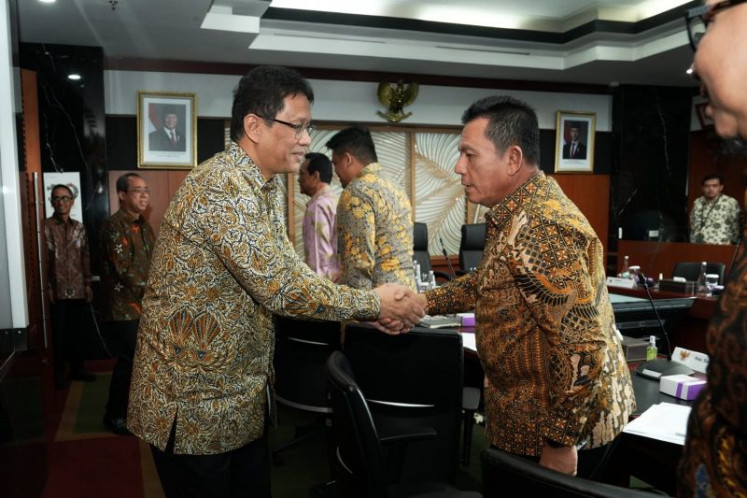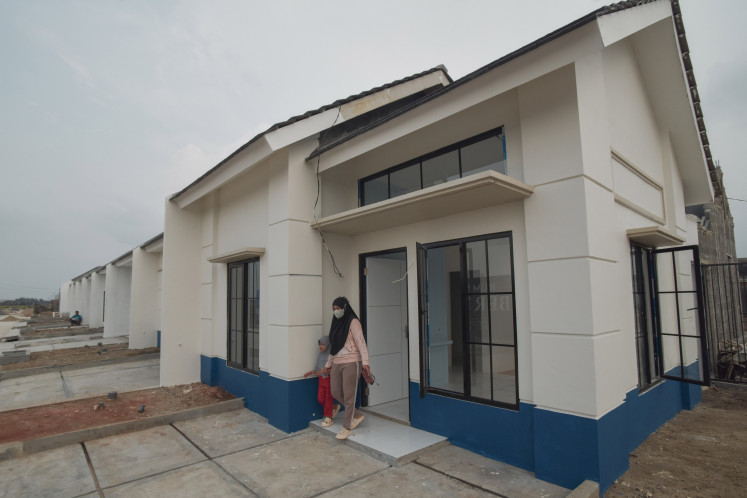Popular Reads
Top Results
Can't find what you're looking for?
View all search resultsPopular Reads
Top Results
Can't find what you're looking for?
View all search resultsWorld zooms in on Indonesia’s human rights
Indonesia will not find it easy to convince people that it is making progress in human rights as reflected by reports issued by United Nations bodies and civil society organizations (CSOs
Change text size
Gift Premium Articles
to Anyone
I
ndonesia will not find it easy to convince people that it is making progress in human rights as reflected by reports issued by United Nations bodies and civil society organizations (CSOs.)
The reports, together with a report issued by the government, will be assessed by 93 countries during the quadrennial Universal Periodic Review (UPR) at the UN in Geneva, Switzerland, on May 3.
Although not legally binding, the UPR aims to push for political will as the UN Human Rights Council regularly reviews all 193 member countries every four years by comparing the three reports.
Both reports from CSOs and the UN noted Indonesia has yet to implement recommendations it accepted for a number of international human rights treaties, such as the Rome Statute of the International Criminal Court and the International Convention for the Protection of All Persons from Enforced Disappearance.
As queries on the commitment to protecting rights of minority communities have piled up, related issues are set to take center stage as both reports noted the neglect freedom of expression, including rights of religious minorities, women’s rights and sexual orientation and gender identity, including the lesbian, gay, bisexual and transgender (LGBT) community.
The CSOs report stated that the government had “failed to take measures necessary to prevent discrimination of minorities.”
In its report, the government will highlight its successful efforts to provide infrastructure development and better access to education and health for citizens living in the country’s rural areas as human rights progress, instead of explaining the progress it has made in the sectors that have become global concerns, such as the death penalty, past human rights abuses and human rights conditions in Papua.
The Foreign Ministry’s director for human rights and humanitarian affairs, Dicky Komar, said the government report was outlined in 13 clusters of issues to respond to the 150 recommendations it had accepted at the hearing in 2012.
“We have tried to prepare the report in an inclusive and comprehensive manner,” Dicky told a press briefing in Jakarta on Thursday.
In a country of over 258 million people across some 17,000 islands, Dicky noted some of the challenges in raising awareness of human rights and gaps in resources.
Dicky noted that Indonesia would continue improving human rights through the 2015-2019 National Action Plan on Human Rights (NAP-HR), as noted in the national report submitted to the UPR.
Meanwhile, consistent with the global organization’s stance, the UN in its report “regretted that Indonesia had resumed executions and that the courts imposed death sentences for drug crimes.”
Other countries have submitted questions over human rights conditions in Papua, such as investigations into rights violations in Paniai, Wasior and Wamena, improving access to health resources as well as providing foreign journalists free access to Papua.
Ifdhal Kasim from the Office of the Presidential Staff, a member of the Indonesia delegation, told The Jakarta Post the challenges for journalists in Papua lied in the fact that some local authorities issued policies that deviated from national regulations due to local security conditions.
“But these conditions can be improved,” Ifdhal told the Post.
The government stated in its report that journalist visits to Papua had increased by 41 percent, from 22 in 2014 to 39 visits since President Joko “Jokowi” Widodo in 2015 instructed a standardization of journalist visit procedures to all provinces in Indonesia, including Papua.










